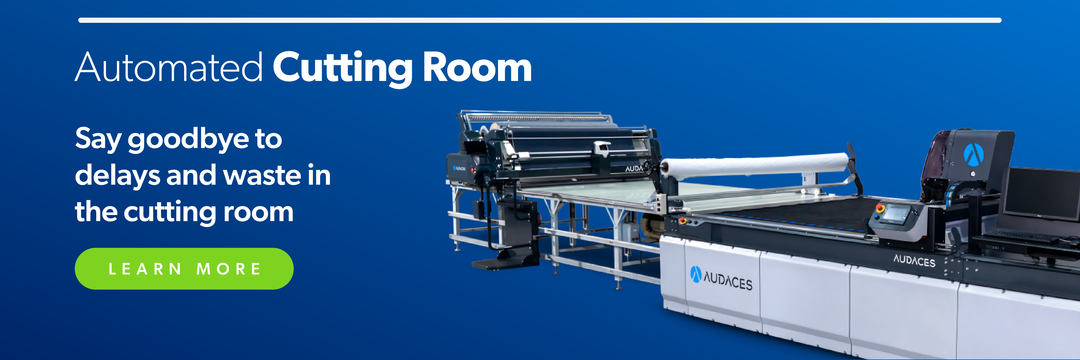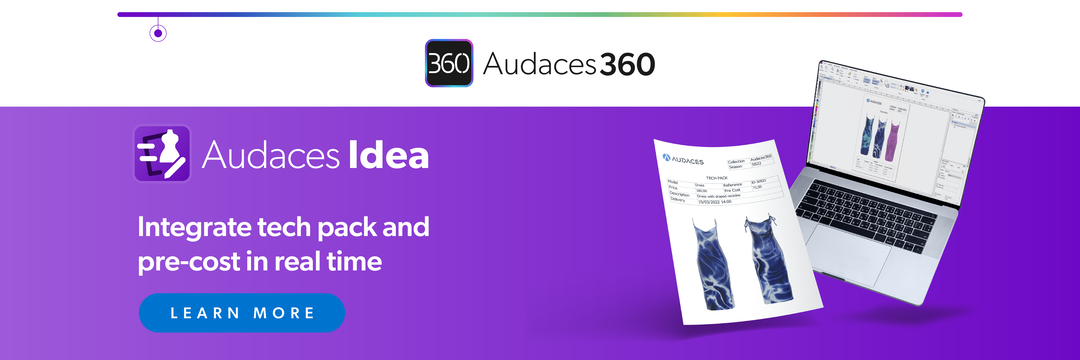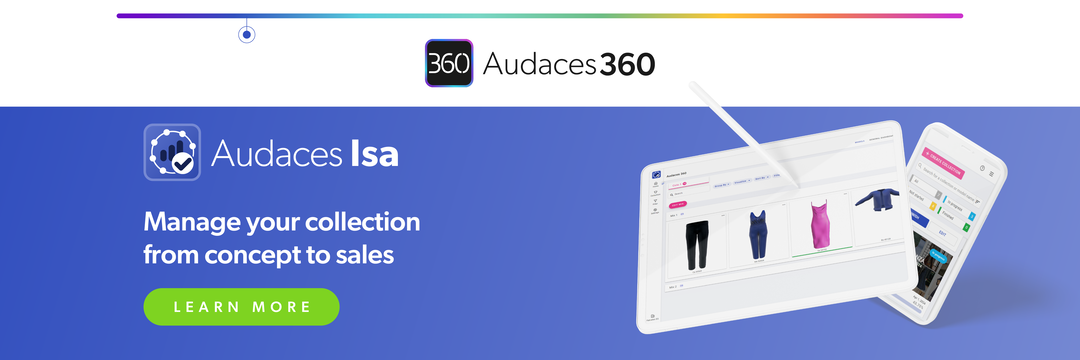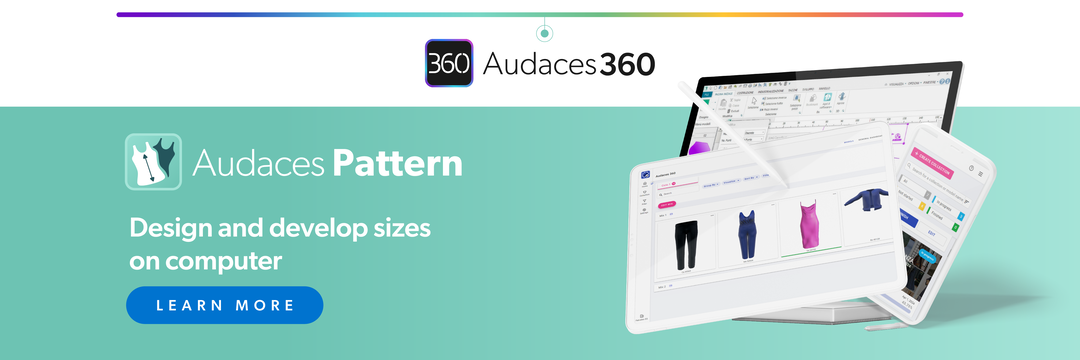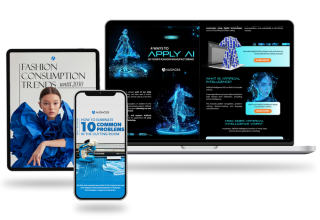Summary
- If you’re wondering what private label is, it involves the production of garments that are sold under the brand of the retailer;
- It’s a widespread practice that has many advantages and opportunities;
- Increase your company’s efficiency with technology. Try the Audaces360 multisolution for free!
If you’re wondering what a private label is, the answer is simple. It’s the practice of marketing garments made by one company, the manufacturer, under the brand name of another company. It’s often also called white labelling or “no-brand.”
In other words, on the label of the garment you will find the store’s name, and not that of the company that actually produced it.
Private labelling can be related to the production of basic clothing, but also sophisticated and luxury clothing. So, if you want to invest in this market, it’s important to have a clear idea of what a private label is and what you want to produce.
If this topic interests you, read on!
Sumário
What is a private label?
A private label is when a company creates its products and sells them under its brand, but these products are manufactured by another company. In other words, the company selling the products is not the same as the one producing them.
This allows the company to create a unique identity for its products, and differentiate itself in the market, without dealing with the entire manufacturing process. Instead, it focuses on design, marketing, and distribution, while another company takes care of production.
This business model is common in many industries, from food to clothing and personal care products.
Companies opt for private labels to have more control over the brand and offer exclusive products to their customers, often at competitive prices.
The main benefit is flexibility, as the company can quickly adapt its product offering to market demands without heavily investing in its own production facilities.
Moreover, private labels allow building a reputation for quality based on the brand, even without directly manufacturing the products.
Learn more: Discover how to enhance productivity in the textile business chain
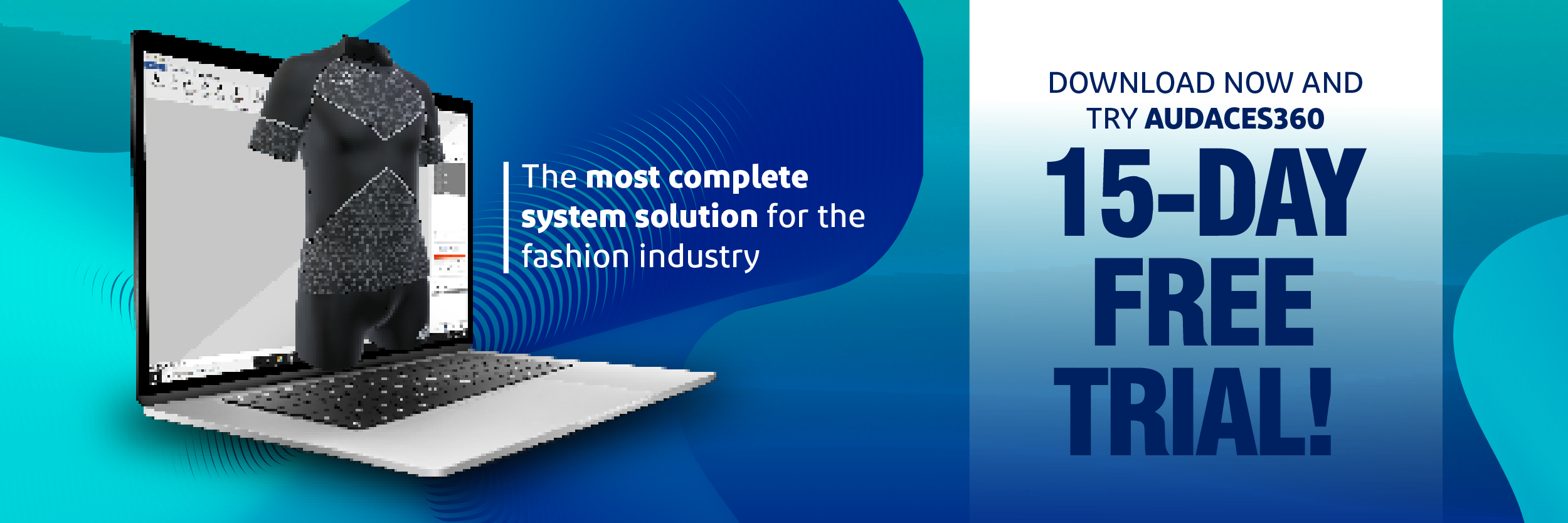
How to start a private label business?
Nowadays, it’s very common for large brands not to produce directly, but to buy and rebrand clothes produced by others.
Private labels are the companies that take care of the production of these garments. Contrary to what one might think, their role is by no means passive, quite the opposite.
To start your brand, there are some important steps to follow:
Research your niche
Identify your target audience and the specific style or theme you want to focus on. Research market trends and competitors to ensure there is demand for your product.
Be aware of regulations
Consult with a professional, such as an accountant or a business law specialist, to ensure compliance with all legal obligations applicable to your case.
Specific steps and requirements may vary by country, state, or municipality where you intend to open your business and the type of production you want to establish.
Learn more: Discover a step-by-step guide on how to start an online fashion store
Negotiate with good suppliers
Suppliers are crucial for a fashion company, especially for a private label.
To identify good suppliers, it’s recommended to visit companies and get an idea of the company’s structure: first impressions are often important!
Consider aspects such as product quality, prices, additional services, and support. Always formalize clear contracts to protect both you and the supplier.
Plan your inventory and logistics
To meet the demands of each clothing item and handle unforeseen events, a private label must have complete control over its inventory. Therefore, this is an activity that involves a lot of planning and organization.
Well-executed inventory management minimizes losses and unused investments, in addition to enhancing financial control.
Learn more: Discover 9 best practices for optimizing apparel inventory management
Private label vs. own brand: what’s the difference?

In the previous paragraphs, we explored what a private label is in the fashion industry. As we saw, it’s a term used to describe the production of clothing items for a specific retailer, with the retailer’s name or logo.
The retailer then applies its brand name to the private label product, and in this case, it’s called its brand.
Consequently, while in the case of private labelling, the brand takes a background role, and the work of branding and marketing becomes even more important.
Sometimes, a company may do both. This is the case, for example, when part of the production is an own brand, while the other is marketed under private labels with other brands.
In this case, acquiring a private label can allow own-brand companies to saturate the factory line capacity with additional large volumes.
What about private label vs. white label?
As you know, with private label products, retailers have full control over product design and materials. This results in a unique offering that is exclusive to the brand.
In contrast, white label products are often more generic. They are produced by one company and sold under various brand names.
These products typically offer less customization and are intended to be marketed by multiple retailers.
White label solutions are cost-effective and can be scaled quickly. However, they lack the unique features and branding that private label products provide.
It’s a good option for retailers who want to expand their product range without investing in design work.
What are the advantages of private labels?
Now that you know what a private label is, you’ll want to know why you chose it. Relying on a private label to produce a particular product offers several competitive advantages to companies in the industry.
Let’s take a look at some of them:
Brand control
A private label allows you to have exclusive control over a product’s packaging. This enables you to differentiate yourself from the competition and specialize in producing a specific product or group of products that appeal to other companies.
Brand control and focus on the product are the perfect recipe for customer loyalty, to build trust relationships, which is even more crucial in own brands!
Higher profit margins
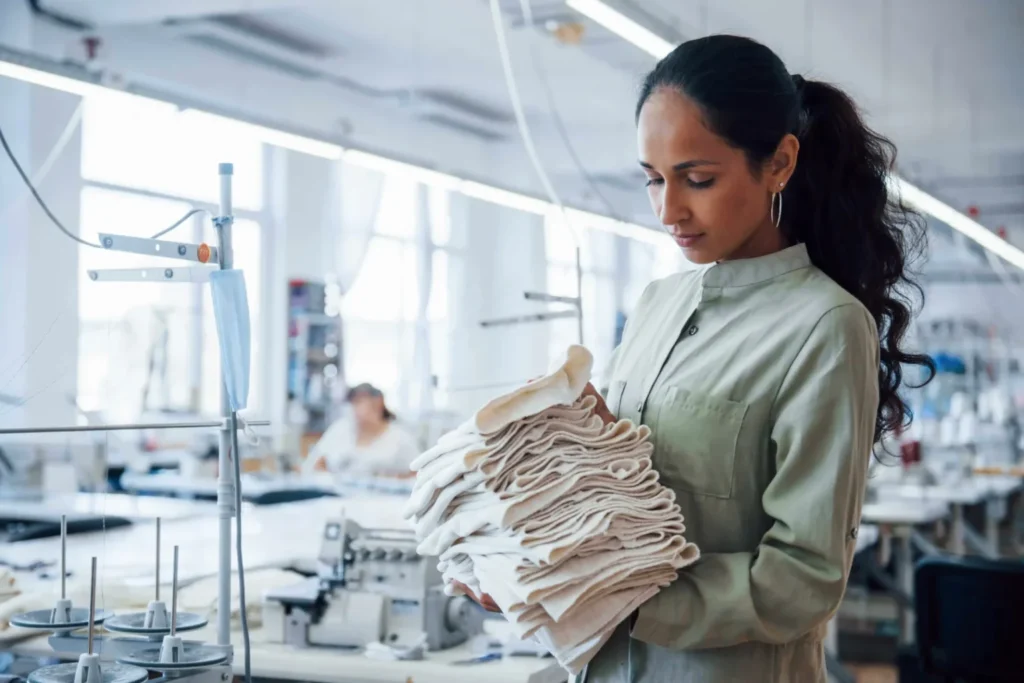
One of the main advantages of private labels is the ability to generate higher profit margins compared to traditional brand products.
This is because companies selling products with their own brand have complete control over the production process, from design to distribution. This allows them to reduce production costs, eliminating intermediaries and third-party profit margins.
Additionally, companies can set competitive prices for their own brand products, often selling them at lower prices than recognized brand products. This can attract price-conscious consumers and boost sales, further contributing to a healthy profit margin.
Learn more: Discover how to reduce costs in wholesale clothing production
Customization
Another advantage of private labels is customization. These companies enable full adaptation of their products to the customer’s target audience and stand out from the competition.
Moreover, private labels allow customization with higher profit margins for brand owners, as they have lower production costs for their products than major brands.
Another aspect to consider is the possibility of making changes to existing clothing items in a short time, as there is no need to go through a lengthy approval process.
Reduced dependence on suppliers
By developing their own brand, companies can reduce their dependence on external suppliers.
Instead of relying on third-party suppliers to provide products under an established brand, companies can work directly with manufacturers and control the supply chain.
This can be especially advantageous in terms of quality and consistency. Companies can carefully select suppliers based on specific criteria, ensuring product quality.
Furthermore, by eliminating intermediaries, companies can negotiate directly with manufacturers, reducing costs and ensuring a more stable and reliable supply.
Boost your private label business with Audaces technology
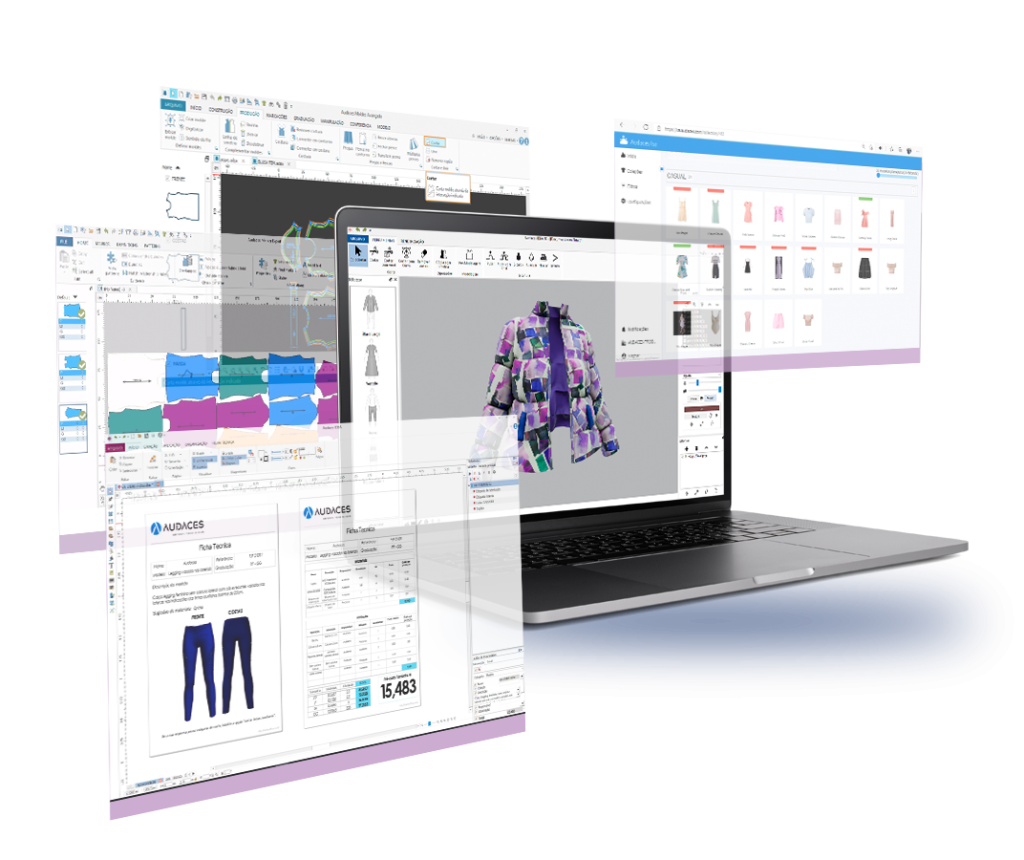
Efficiency and organization are fundamental elements for the success of a company, especially a private label.
If, after understanding what your brand is, you want to know the tools that can make companies take off, don’t miss all the possibilities of Audaces technology!
Efficiency and organization are fundamental elements for the success of a company, especially a private label.
Audaces360
Audaces360 is a comprehensive solution that integrates advanced technologies to optimize production processes in the textile industry, suitable for companies of all sizes and types.
This software was developed to meet the needs of the textile and clothing industry and designed to streamline and speed up the production process.
Audaces360 offers a wide range of functionalities, including digital pattern design and approval, fabric cutting and placement, production management, and integration with other textile machines.
The goal of this solution is to increase efficiency, reduce waste, and promote more agile and competitive production. Perfect for own-brand companies that need to communicate and coordinate work with external companies.
Composed of the following software:
- Audaces Isa, the fashion PLM to plan and manage your collection in real time
- Audaces Fashion Studio, to create your pieces directly in a three-dimensional environment and reduce the number of prototypes
- Audaces Idea, to automatically create vector drawings, technical sheets, and cost forecasts
- Audaces Digiflash, to scan your patterns with a simple photo
- Audaces Pattern, to create patterns and develop sizes directly on the computer
- Audaces 3D, to sew your patterns and simulate the fit on a 3D avatar
- Audaces Marker, to increase efficiency with automatic marker creation
- Audaces Supera, to save time and fabric with queue management
If you are inspired by private labels’ opportunities, it’s time to carefully plan the next steps! Here we are some free content to help:
FAQ
Research your niche, stay informed about regulations, find reliable suppliers, and carefully plan inventory and logistics.
Private labels allow more control over your brand, reduce marketing and communication costs, and encourage customization.
Technology can help increase the success of your own brand by improving processes and communication within and outside your company.


